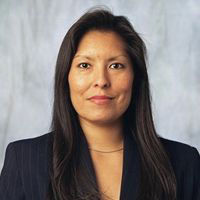PHOENIX — The ACLU on Wednesday filed a broad-based constitutional challenge to the ability of prosecutors and police in Arizona to seize private property without a court order.
In legal papers filed in U.S. District Court, the American Civil Liberties Union claims that San Tan Valley resident Rhonda Cox had her rights violated when Pinal County sheriff’s deputies took her truck and the Pinal County Attorney’s Office sold it based on the activities of her son. It asks Judge Diane Humetewa to require Pinal County officials, named as defendants, to reimburse her.
There was no comment from either Sheriff Paul Babeu or County Attorney Lando Voyles, who ran as a ticket in the 2012 campaign.
But while the lawsuit focuses on the Pinal officials, the real goal is to get the judge to void laws that are used extensively by police and prosecutors throughout the state.
Attorney Jean-Jacques Cabou said the Arizona law has provisions which violate various constitutional rights. And he said a ruling that enjoins Pinal County officials from using the laws effectively would block state, county and city police and prosecutors statewide.
At the heart of the case are the state’s civil assets forfeiture laws. They are designed to allow prosecutors to deprive criminals of the assets used in breaking the law.
But what’s happened, Cabou said, is that police and prosecutors have become dependent on all the money raised. That, he said, creates “perverse incentives” for law enforcement officers to go out of their way not just to seize property but to throw roadblocks in the path of those who make efforts to retrieve what has been taken.
He said there’s a lot of money involved.
Cabou said the accounts for the Attorney General’s Office at last count had more than $31 million. A pooled account for county attorneys, he said, had $43.2 million, with local agencies holding $9.5 million.
And Cabou said these funds are controlled by police and prosecutors, providing them with “a perverse, unfair, unconstitutional incentive to seize and forfeit as much money and property as possible as a means to ensure a slush fund available to them with little or no oversight.”
By contrast, he said, federal laws and those in most other states have the proceeds from seized property go into the general treasury, removing the incentive for police and prosecutors to go after as much as they can.
Cabou acknowledged that Cox’s son, Chris, had been arrested in 2013 after deputies determined that the hood and a cover on the back of her pickup truck, which he was driving, had been stolen. Based on that, deputies seized the truck.
The attorney said, though, that Cox herself was unaware of the stolen item and therefore, under the terms of the law, entitled to have it returned. That did not happen and the truck and its contents eventually were sold.
Cabou said there are various problems with the law.
For example, he said, the property is automatically taken unless the owner challenges it. He said Arizona law specifically allows for challenges for various reasons, including that the owner had no knowledge of the crime committed with the property by someone else.
But he said it takes a $304 filing fee just to get into court, more than some property is worth. And that’s even assuming the person does not hire legal counsel. That, he said, is inherently unfair — and he believes illegal.
“The state takes your stuff,” Cabou said. “And the only process by which you’re allowed to fight for it is one in which you have to pay to play.”
The other big flaw in the Arizona law, he said, are the “one-way attorneys’ fees.”
Cabou said a deputy Pinal County attorney threatened that if Cox lost, prosecutors would pursue her for all of its fees and costs.
But Cabou said the law is set up so that if a property owner like Cox wins, she does not get her legal fees paid by the county. So she gave up the fight.
In essence, he said, the laws “punish Rhonda for standing up for herself and her property in court.”
Then there’s the legal process itself.
“Rhonda was caught in a Kafkaesque predicament where, bizarrely, she bore the burden of proving that she was entitled to get the truck back,” Cabou wrote. “The state did not have to prove that Rhonda did anything wrong — let alone criminal — in order to keep the truck.”
In the lawsuit, Cabou takes particular aim at Pinal County officials.
He listed some uses of the funds, including that Voyles has his home security system paid for with money from seized items. Other uses by Voyles include office staff and retirement contributions for employees.
And Cabou said Babeu funnels money into a foundation “which buys things for him and his department.” What that does, said the lawyer, is allow Babeu to avoid laws on seeking bids for items and providing a public record of where the money goes.





